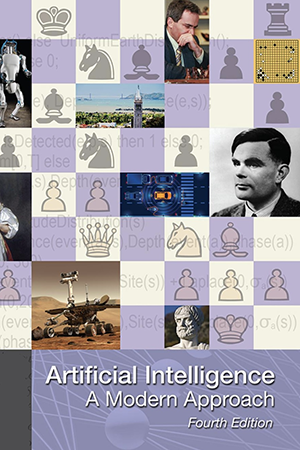
Library
Artifical Intelligence
Mark Coeckelbergh
AI Ethics
An accessible synthesis of ethical issues raised by artificial intelligence that moves beyond hype and nightmare scenarios to address concrete questions. Artificial intelligence powers Google's search engine, enables Facebook to target advertising, and allows Alexa and Siri to do their jobs. AI is also behind self-driving cars, predictive policing, and autonomous weapons that can kill without human intervention. These and other AI applications raise complex ethical issues that are the subject of ongoing debate. This volume in the MIT Press Essential Knowledge series offers an accessible synthesis of these issues. Written by a philosopher of technology, AI Ethics goes beyond the usual hype and nightmare scenarios to address concrete questions. Mark Coeckelbergh describes influential AI narratives, ranging from Frankenstein's monster to transhumanism and the technological singularity. He surveys relevant philosophical discussions: questions about the fundamental differences between humans and machines and debates over the moral status of AI. He explains the technology of AI, describing different approaches and focusing on machine learning and data science. He offers an overview of important ethical issues, including privacy concerns, responsibility and the delegation of decision making, transparency, and bias as it arises at all stages of data science processes. He also considers the future of work in an AI economy. Finally, he analyzes a range of policy proposals and discusses challenges for policymakers. He argues for ethical practices that embed values in design, translate democratic values into practices and include a vision of the good life and the good society.
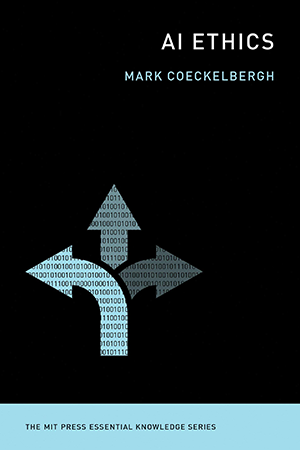
Marvin Minsky
Perceptrons
The first systematic study of parallelism in computation by two pioneers in the field. Reissue of the 1988 Expanded Edition with a new foreword by Léon Bottou In 1969, ten years after the discovery of the perceptron—which showed that a machine could be taught to perform certain tasks using examples—Marvin Minsky and Seymour Papert published Perceptrons, their analysis of the computational capabilities of perceptrons for specific tasks. As Léon Bottou writes in his foreword to this edition, “Their rigorous work and brilliant technique does not make the perceptron look very good.” Perhaps as a result, research turned away from the perceptron. Then the pendulum swung back, and machine learning became the fastest-growing field in computer science. Minsky and Papert's insistence on its theoretical foundations is newly relevant. Perceptrons—the first systematic study of parallelism in computation—marked a historic turn in artificial intelligence, returning to the idea that intelligence might emerge from the activity of networks of neuron-like entities. Minsky and Papert provided mathematical analysis that showed the limitations of a class of computing machines that could be considered as models of the brain. Minsky and Papert added a new chapter in 1987 in which they discuss the state of parallel computers, and note a central theoretical challenge: reaching a deeper understanding of how “objects” or “agents” with individuality can emerge in a network. Progress in this area would link connectionism with what the authors have called “society theories of mind.”
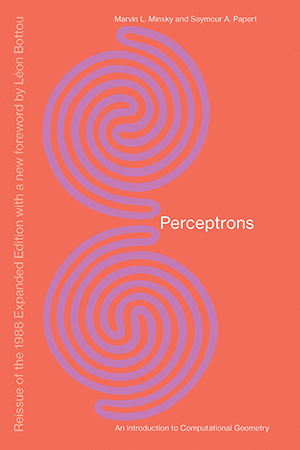
Melanie Mitchell
Artificial Intelligence
Melanie Mitchell separates science fact from science fiction in this sweeping examination of the current state of AI and how it is remaking our world No recent scientific enterprise has proved as alluring, terrifying, and filled with extravagant promise and frustrating setbacks as artificial intelligence. The award-winning author Melanie Mitchell, a leading computer scientist, now reveals AI’s turbulent history and the recent spate of apparent successes, grand hopes, and emerging fears surrounding it. In Artificial Intelligence, Mitchell turns to the most urgent questions concerning AI today: How intelligent—really—are the best AI programs? How do they work? What can they actually do, and when do they fail? How humanlike do we expect them to become, and how soon do we need to worry about them surpassing us? Along the way, she introduces the dominant models of modern AI and machine learning, describing cutting-edge AI programs, their human inventors, and the historical lines of thought underpinning recent achievements. She meets with fellow experts such as Douglas Hofstadter, the cognitive scientist and Pulitzer Prize–winning author of the modern classic Gödel, Escher, Bach, who explains why he is “terrified” about the future of AI. She explores the profound disconnect between the hype and the actual achievements in AI, providing a clear sense of what the field has accomplished and how much further it has to go. Interweaving stories about the science of AI and the people behind it, Artificial Intelligence brims with clear-sighted, captivating, and accessible accounts of the most interesting and provocative modern work in the field, flavored with Mitchell’s humor and personal observations. This frank, lively book is an indispensable guide to understanding today’s AI, its quest for “human-level” intelligence, and its impact on the future for us all.
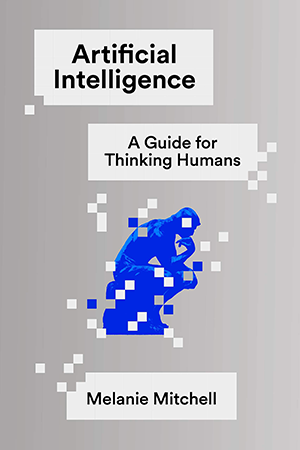
Mizuko Ito
Algorithmic Rights and Protections for Children
One in three Internet users worldwide is a child, and what children see and experience online is increasingly shaped by algorithms. Though children’s rights and protections are at the center of debates on digital privacy, safety, and Internet governance, the dominant online platforms have not been constructed with the needs and interests of children in mind. The editors of this volume, Mizuko Ito, Remy Cross, Karthik Dinakar, and Candice Odgers, focus on understanding diverse children’s evolving relationships with algorithms, digital data, and platforms and offer guidance on how stakeholders can shape these relationships in ways that support children’s agency and protect them from harm. This book includes essays reporting original research on educational programs in AI relational robots and Scratch programming, on children’s views on digital privacy and artificial intelligence, and on discourses around educational technologies. Shorter opinion pieces add the perspectives of an instructional designer, a social worker, and parents. The contributing social, behavioral, and computer scientists represent perspectives and contexts that span education, commercial tech platforms, and home settings. They analyze problems and offer solutions that elevate the voices and agency of parents and children. Their essays also build on recent research examining how social media, digital games, and learning technologies reflect and reinforce unequal childhoods.
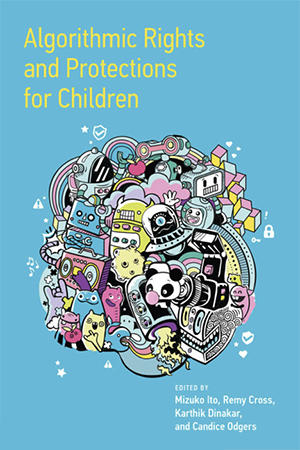
Stuart Russell
Artificial Intelligence
Updated edition of popular textbook on Artificial Intelligence. This edition specific looks at ways of keeping artificial intelligence under cThelong-anticipated revision of ArtificialIntelligence: A Modern Approach explores the full breadth and depth of the field of artificialintelligence (AI). The 4th Edition brings readers up to date on the latest technologies,presents concepts in a more unified manner, and offers new or expanded coverageof machine learning, deep learning, transfer learning, multi agent systems,robotics, natural language processing, causality, probabilistic programming,privacy, fairness, and safe AI.
